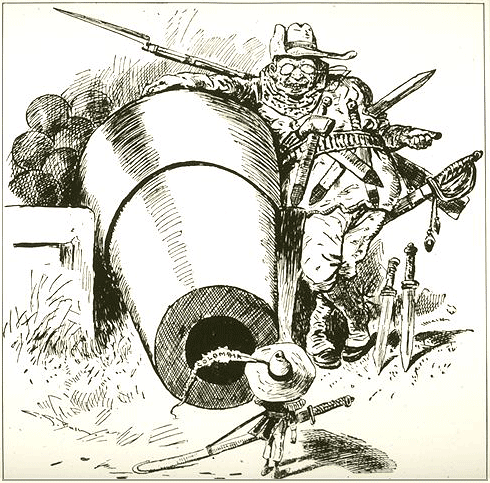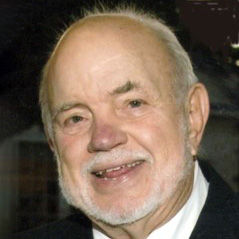December 6, 2004, marked the centennial of one of the landmark statements in U.S. foreign policy: Theodore Roosevelt’s so-called “Corollary to the Monroe Doctrine.” It was here, and not in the post-9/11 speeches of George W. Bush, that we first heard the rationalization for a pre-emptive imperialism coming from the White House.
The preamble to U.S. imperialism, however, was delivered in 1821 by John Quincy Adams, two years before he formulated the Monroe Doctrine. “America goes not abroad in search of monsters to destroy,” said Adams, who anticipated that Cuba would soon fall like a ripe apple into the American basket. The Doctrine, albeit with the support of the British fleet, was a bold statement to Europe to forget about further colonization or political maneuvering in the Americas, and indicated this nation’s intention to stay out of European affairs.
By the end of the nineteenth century, Teddy Roosevelt had become a major player in the emergence of an adventurous U.S. imperialism, making Cuba a protectorate, taking Puerto Rico and Guam, and involving the nation in a major counterinsurgency in the Philippines in order to “uplift” those poor souls toward “Christianity” and ”democracy,” as well as helping put down the Boxers in China.
In the case of Panama, of course, Teddy Roosevelt acknowledged that he “took” the area while the Congress debated. One aspect of his approach to foreign policy, which links him to George W. Bush, is that unlike realists such as then-Secretary of State Elihu Root, TR rationalized imperialist policies underneath a pile of moralistic balderdash.
In 1903, TR held forth at length before his Cabinet, arguing that the Panama Canal caper advanced Western Civilization. When he turned to Secretary of War Root to inquire if he had fully justified his policy, Root replied that he certainly had—he had been “accused of seduction” and had “proved conclusively” that he was “guilty of rape.”
In his Annual Message to the Congress on December 6, 1904, Roosevelt stated that in keeping with the Monroe Doctrine, the United States was justified in exercising “international police power” to put an end to chronic unrest or wrongdoing in the Western Hemisphere. Thus, while the original Monroe Doctrine had sought to end European intervention in the Americas, TR’s new Corollary justified U.S. intervention in the hemisphere.
During the next several decades, the U.S. intervened all over the Caribbean, so that the Marines became known as the “State Department troops.” In 1934, Marine General Smedley Butler put it a bit more harshly, calling the Marines “gangsters” for imperialism.
In the last half of the twentieth century military interventionism was, of course, justified in the name of anti-communism. What George W. Bush has done in essence is to extend that idea to making the entire world “safe for democracy.”
America’s real power was always a facet of its ideals of liberty and economic opportunity. But increasing interventionism abroad has severely undercut the force of American idealism and has contributed greatly to the economic decline now facing the country. Ironically, as the U.S. has become engaged in Iraq, has increased support for police powers throughout Latin America, and has pressured Canada to back a missile shield against nuclear attack, Europeans and the Chinese have strengthened their economic positions in both North and South America.
Neo-conservatives around George W. Bush remain obsessed with extending U.S. military power around the world but seem oblivious to the emerging economic crisis facing this country. Last month alone, the federal deficit reached $55 billion and the U.S. Congress approved a new national debt level of $8 trillion. How long can this legacy of Teddy Roosevelt’s imperialism, this internal contradiction of empire, endure? Only time will tell.
For much of the twentieth century, except for Vietnam, the U.S. adopted the kind of “soft power” interventionism associated with such realists as Joseph Nye—what Elihu Root might have called “seduction.” Under George W. Bush, however, the massive killing of civilians in the Iraqi intervention appears to be a throwback to the kind of violent “rape” championed by TR in the Philippines. Bully indeed.

Cartoon: Theodore Roosevelt behind big cannon stares down a small sombrero’d Columbia. (1903).








